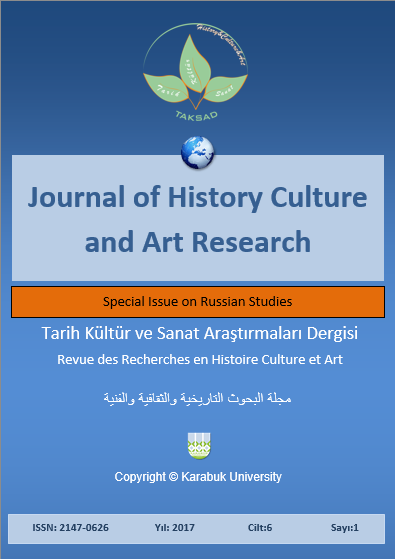Social Life of Knowledge: Epistemological Analysis
DOI:
https://doi.org/10.7596/taksad.v6i5.1248Keywords:
Truth, Correspondence, Coherence, Sociality, Epistemological analysis.Abstract
Epistemological theory which is considered to be the fundamental philosophy of cognition process, reveals itself as a possibility justification in a supra-individual, supra-personal, impersonal, transsubjective form, taking into consideration the content of objective knowledge. Epistemology also builds a cognitive drama as a stage action to achieve it. The purpose of the article is outlined in stage-by-stage consideration of the procedure for constituting the knowledge truth by social symbolic forms and exploring the contexts for the implantation of the cognition products into the cultural frame. The leading method in constituting truth is clarified through epistemological modeling of the ontogenetic and phylogenetic context of the of symbolic categorical forms formation and is comprehended through the operational and interactive aspect. The results of epistemological analysis are as follows: 1) at the micro level, the truth is positioned in the conceptual grid as "pragmatic coherence"; 2) at the macro level, truth is positioned in the conceptual grid as "practical correspondence"; 3) at the mega level, truth is positioned not as a process, but as an accomplished present state: the subject is absorbed not in searching, but staying in the truth. The significance of the research results seems to be that the driving force of mental activity is a constructive combination. Cognitive morphogenesis is carried out as a free combination of symbolic forms, governed by the rules of experimenting on own resources, the result of which is the development of the individual spiritual world. The lever is the logic of "the generation of meanings through the discrimination of meanings," which triggers autonomous autocatalytic processes.
References
Balzac, O. (1952). Sobranie sochinenij. Book II. Мoscow.
Batuev, A. S. (1991). Vysshaja nervnaja dejatel'nost'. Мoscow.
Blejler, E. (1920). Rukovodstvo po psihiatrii. Berlin.
Branskij, V. P. (1962). Filosofskoe znachenie problemy nagljadnosti v sovremennoj fizike. Leningrad.
Braudel, F. (1969). Istorija i social'nye nauki. Sovremennye tendencii v burzhuaznoj filosofii i metodologii istorii. The 3rd vol. Мoscow.
Dostoevskij, F. M. (1934). Pis'ma. Book III. Мoscow.
Eddington, A. S. (1939). The Philosophy of the Physical Science. Cambridge.
Eddington, I. (1942). Physics and Philosophy. Cambridge.
Einstein, A. (1967). Sobranie nauchnyh trudov. Book IV. Мoscow.
Frankl, V. (1990). Chelovek v poiskah smysla. Мoscow, 1990.
Gutner, L. M. (1972). Metodologicheskie principy izmerenija. Leningrad.
Habermas, J. (1987). The Theory of Communicative Action, Volume 2: Lifeword and System: A Critique of Functionalist Reason. Boston: Beacon Press.
Heisenberg, W. (1953). Filosofskie problemy atomnoj fiziki. Мoscow.
Il'in, V. V. (2013). Teorija poznanija. Simvologija. Teorija simvolicheskih form. Мoscow.
Kepler, I. (1982). O shestiugol'nyh snezhinkah. Мoscow.
Lewis, C. I. (1956). Mind and the World Order: Outline of a Theory of Knowledge. New York: Dover publications.
Markov, B. V. (1984). Problema obosnovanija i proverjaemosti teoreticheskogo znanija. Leningrad.
Mead, G. H. (1934). Mind, Self and Society. Chicago.
Ortega-i-Gasset, H. (2001). Vosstanie mass. Мoscow.
Pivovarov, D. V. (1977). O sootnoshenii predmetnogo i operacional'nogo komponentov nauchnogo poznanija. Voprosy filosofii, 5, 42-45.
Roden. O. (1914). Iskusstvo. Saint-Petersburg.
Tarski, A. (1944). The Semantics conception of truth. Philosophy and phenomenological research, 4, 12-15. New York.
Downloads
Published
How to Cite
Issue
Section
License
All papers licensed under Creative Commons 4.0 CC-BY.- Share — copy and redistribute the material in any medium or format
- Adapt — remix, transform, and build upon the material for any purpose, even commercially.
Under the following terms:
Attribution — You must give appropriate credit, provide a link to the license, and indicate if changes were made. You may do so in any reasonable manner, but not in any way that suggests the licensor endorses you or your use.
- No additional restrictions — You may not apply legal terms or technological measures that legally restrict others from doing anything the license permits.







